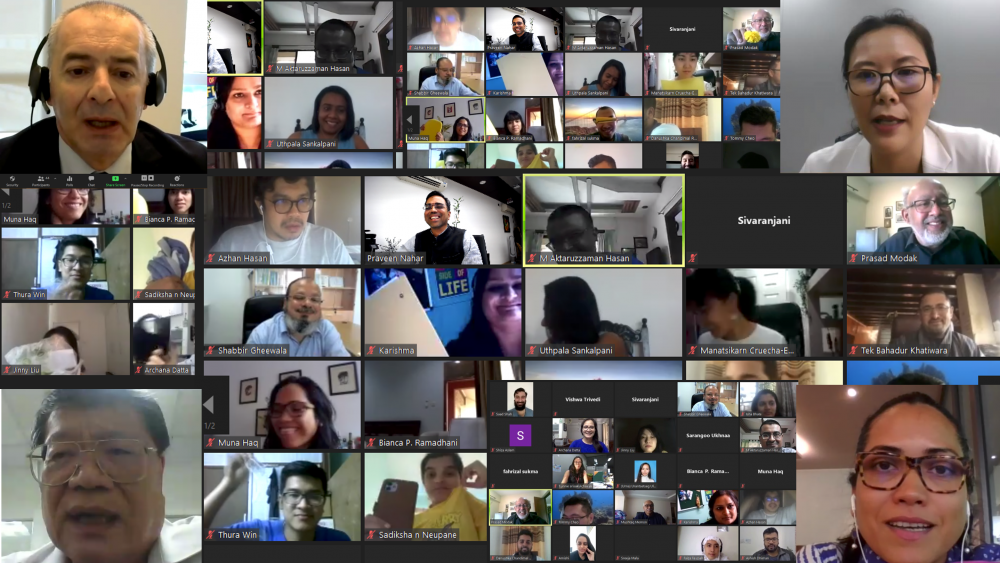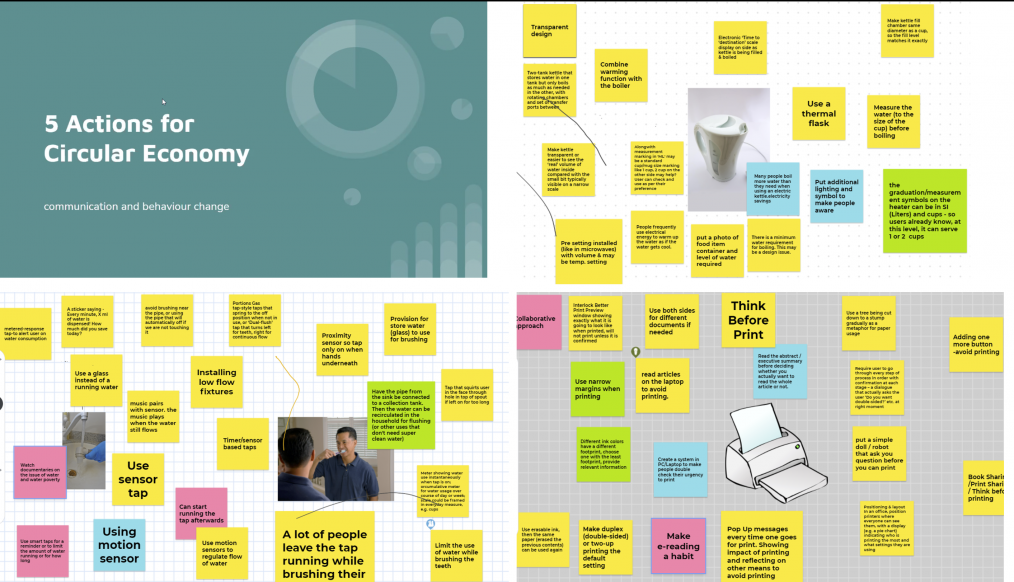
On 14th December 2020, SWITCH-Asia RPAC launched its 2020 Leadership Academy on Communicating Circular Economy. 44 young and motivated professionals representing public and private, including academic sectors from 17 countries in the Asia region joined the virtual academy, spread over a week of online and offline sessions. The 2020 Leadership Academy focuses on How to Communicate Circular Economy (CE) to enhance behaviour changes with emphasis on interdisciplinary, project-based, and participatory approaches. The Academy further aims to strengthen the network of young professionals across Asia in order to promote comprehension and uptakes of sustainable consumption and production (SCP) in the region.
 The European Union (EU) Delegation to Thailand, Joint Graduate School of Energy and Environment (JGSEE), Ekonnect Knowledge Foundation and the United Nations Environment Programme (UNEP) officially opened the event.
The European Union (EU) Delegation to Thailand, Joint Graduate School of Energy and Environment (JGSEE), Ekonnect Knowledge Foundation and the United Nations Environment Programme (UNEP) officially opened the event.
Prof. Navadol Laosiripojana, Director of the Joint Graduate School of Energy and Environment (JGSEE), King Mongkut's University of Technology Thonburi (KMUTT), in his opening remarks, spoke about the role played by CE as an important instrument in shaping global economies and the significant role it can play to combat climate change as well as to achieve the Sustainable Development Goals.
Key speaker Mr. Giuseppe Busini, Deputy Chief of Mission, EU Delegation to Thailand explained how COVID-19 has amplified socio-economic inequalities and emphasized how the recovery strategy for this pandemic should encompass the need to do a lot more than what is currently being done for gaining economic and well as ecological sustainability.
Dr. Mushtaq Memon from UNEP Regional Office for Asia and the Pacific (ROAP), reinforced the importance of SWITCH-Asia’s role in promoting Sustainable Consumption and Production (SCP) and Circular Economy by supporting governments, businesses and consumers.
During the week, Dr. Prasad Modak, Director, Ekonnect Knowledge Foundation and Dr. Shabbir Gheewala, Professor, JGSEE, KMUTT along with guest experts engaged participants in active discussions on policies, regulations, economic instruments and business models related to CE, Life Cycle Thinking (LCT), impact of COVID-19 and the importance of communication and behaviour change in CE.
Until 18th December, participants had the opportunity to learn in detail about opportunities and strategies of driving sustainable behaviour using various communication channels.

Participants gained knowledge of factors affecting environment behaviour (week and strong levers), effective behaviour change and communication design strategies for different stakeholder groups (investors, governments, consumers, etc.) and the design of sustainable products for behavioural change. Participants were also engaged through on-line group exercises, a participation to a regional dialogue to understand how CE could be promoted through startups and innovation, offline assignments and case studies analysis on topics such as business models in CE and application of life cycle assessment.
Throughout the week, digital tools such as Mentimeter and jam-board were used to increase interaction and gauge feedback. Participants gave a high score of 8.3 out of 10 to 2020 Leadership Academy on Communicating Circular Economy.
To know more about this event: SWITCH-Asia Leadership Academy 2020
Contact details:
Dr. Mushtaq Ahmed Memon
Regional Coordinator for Resource Efficiency - United Nations Environment Programme, Regional Office for Asia and the Pacific
Project Manager - Regional Policy Advocacy Component (SWITCH-Asia – the European Union funded programme)
Email: [email protected]



